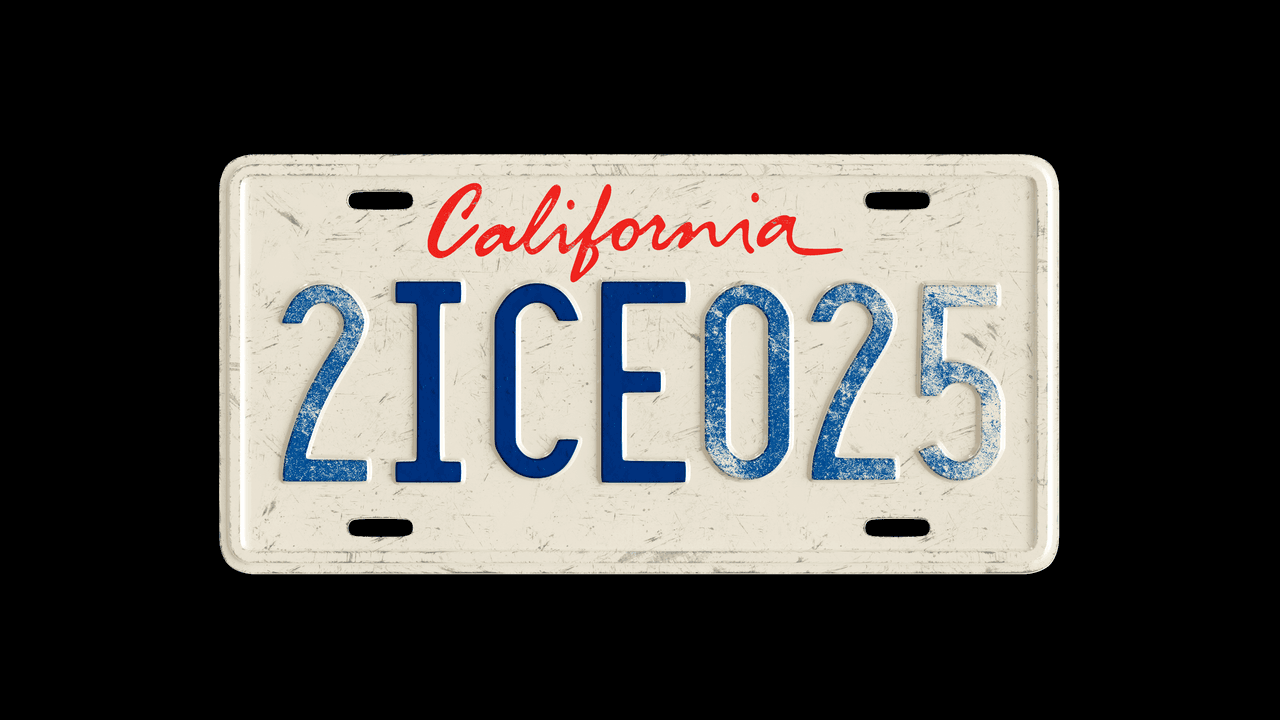With the images they capture at Terminal Island, the Peace Patrol and Unión del Barrio, an affiliated community-activist organization, compare vehicles with those that appear at immigration raids throughout the region. Some vehicles logged at Terminal Island by the group have been spotted as far away as Ventura, and even Sacramento. Once a license plate has been confirmed as that of a federal agent by appearing both at Terminal Island and at an immigration-enforcement raid, the Peace Patrol will post an image of the plate and the vehicle to the group’s Instagram account. In a few instances, “we’ve seen one license plate on two different vehicles,” Maldonado said. Other times, a temporary paper license plate has been used to obscure known plates.
“Exposure is not something that ICE wants,” Tim McOsker, a Los Angeles City Council member whose district covers Terminal Island, explained to me in a phone call. McOsker has been a valuable resource for the Patrollers, and his wife has volunteered with the group. “When you are engaged in a systematic, unconstitutional activity where you’re trying to grab as many people in your net as possible, you do not want cameras.” The agents flowing through Terminal Island seem to agree. According to the Peace Patrol, after three months and dozens of confirmed vehicles and plates, certain cars are known to the Patrollers and have nicknames, like Christopher Columbus, Big Red, and Jammer. The federal agents have become aware of the Patrollers, too. Some agents will attempt to hide their faces as they pass—what the patrollers have dubbed the shy shoulder. Others will try to disguise their unmarked cars with things like a “COEXIST” bumper sticker (nickname: “Captain Coexist”) or Teddy bears on the dashboard. Still others will get aggressive. “We’ve been swerved at, we’ve had cars rip down the street at seventy, eighty miles per hour,” said Cait Bartlett, another former L.A. public-school teacher. Not long after, a large pickup truck known to the group rolled by, its horn blaring at the patrollers as the driver flashed his middle finger. “They’re trying to be intimidating,” Bartlett continued. “So, there is a little bit of nervousness attached to it, but I know the work that we’re doing is important.”
A month earlier, that intimidation had boiled over. On the morning of August 8th, two masked men leaving the federal complex exited their vehicle and targeted one of the Patrollers, Amanda Trebach, who was photographing cars and holding a protest sign. She was pinned to the ground, handcuffed, and thrown into a van. Then, as Trebach recounts, the agents drove her into the complex, where she was detained for several hours. Later, she was moved into a second vehicle by masked, armed men (including one of the men who had arrested her), where a special agent from the Department of Homeland Security questioned her. From there, Trebach was moved to a federal detention facility in downtown Los Angeles, where she was held until later the next day.
When reached for comment, Tricia McLaughlin, the D.H.S. Assistant Secretary for public affairs, alleged that Trebach jumped in front of a Border Patrol vehicle leaving the federal complex, causing the driver to swerve, then “hit the car with her signs and fists while yelling obscenities at agents.” McLaughlin further alleged that Trebach blocked agents of Customs and Border Protection from carrying out their duties, and that led to her arrest. (Trebach has not been charged with a crime.)
“None of that happened,” Trebach told me, when reached by phone. D.H.S. is “very frustrated and angry that we’re out there filming them, but we’re standing on public property.” She also said that her cellphone was confiscated while in detention, and it remains in the possession of D.H.S. As a result, Trebach, an I.C.U. nurse, worries about the additional personal information that agents may have accessed and could use to continue targeting her. “I’m scared every night when I come home that they’re going to take me away,” she said.
For Suzuki Daniels, the Peace Patrol co-founder, video of Trebach’s arrest is still challenging to watch. “I have a physical reaction to it,” she said. “The only reason that it’s not getting national outcry is that, right now, we’re being inundated with so many crimes in our communities and across the United States. I think we’re kind of stunned, and in a freeze-trauma response.”

